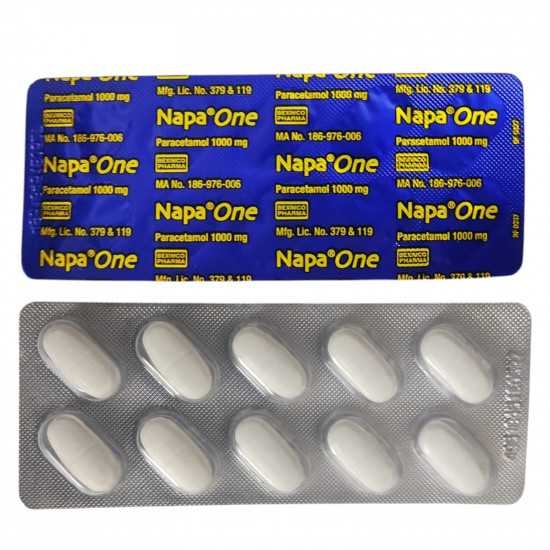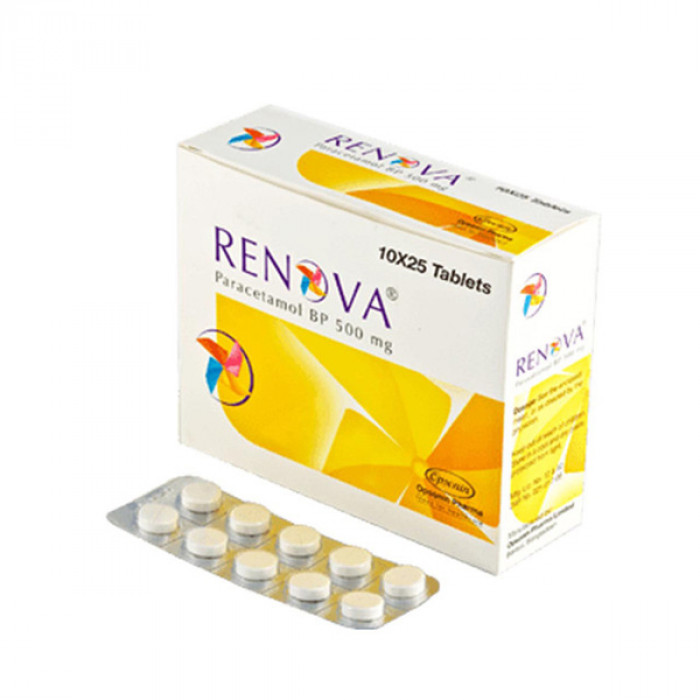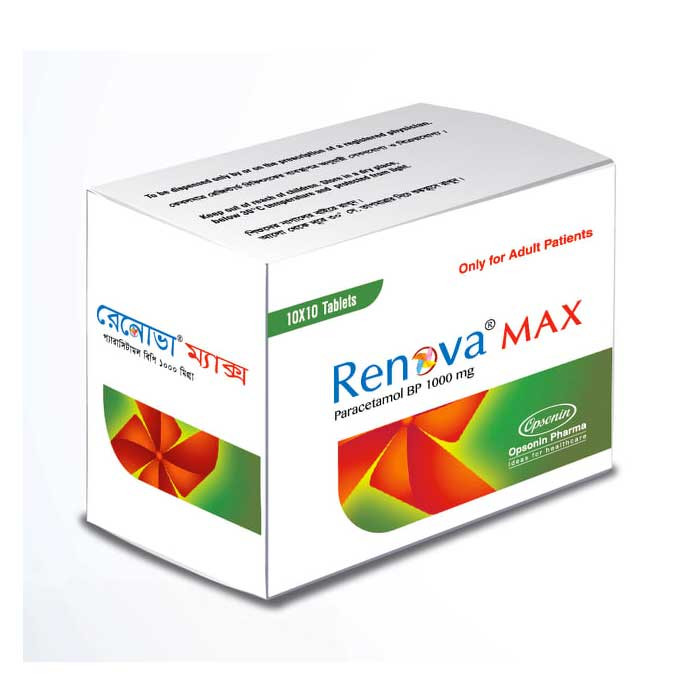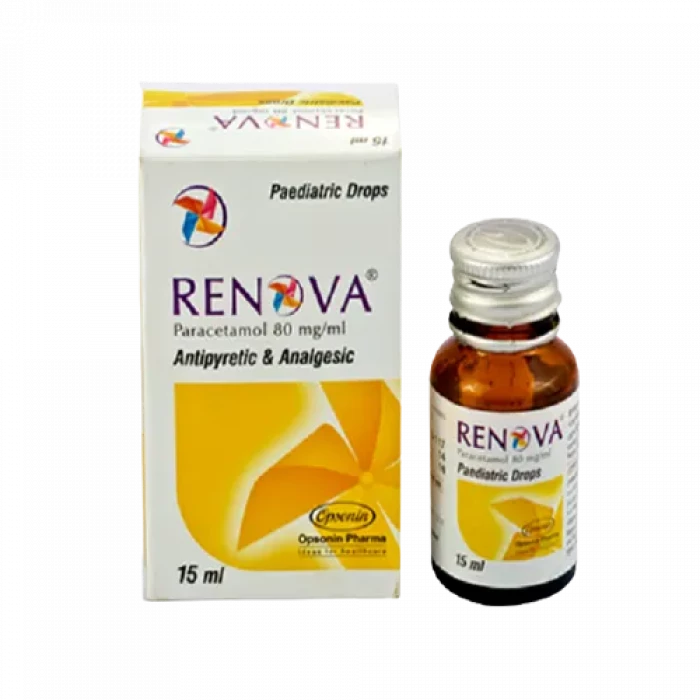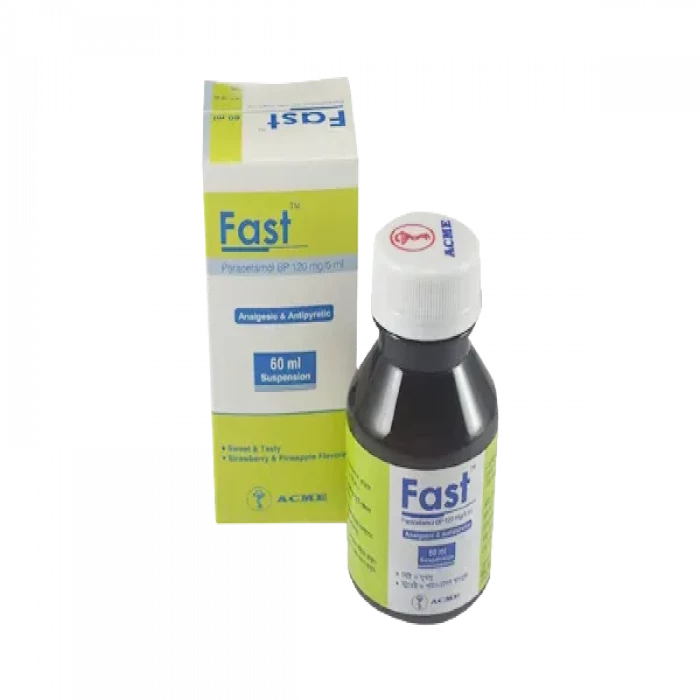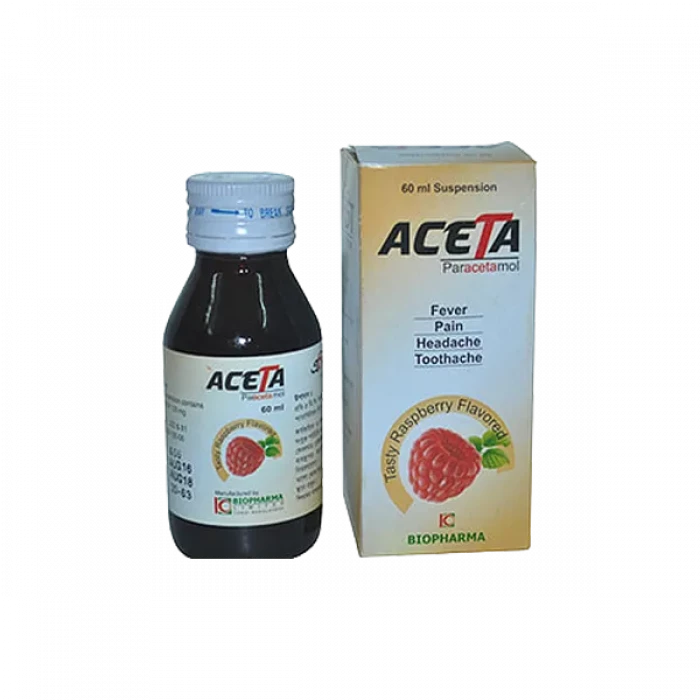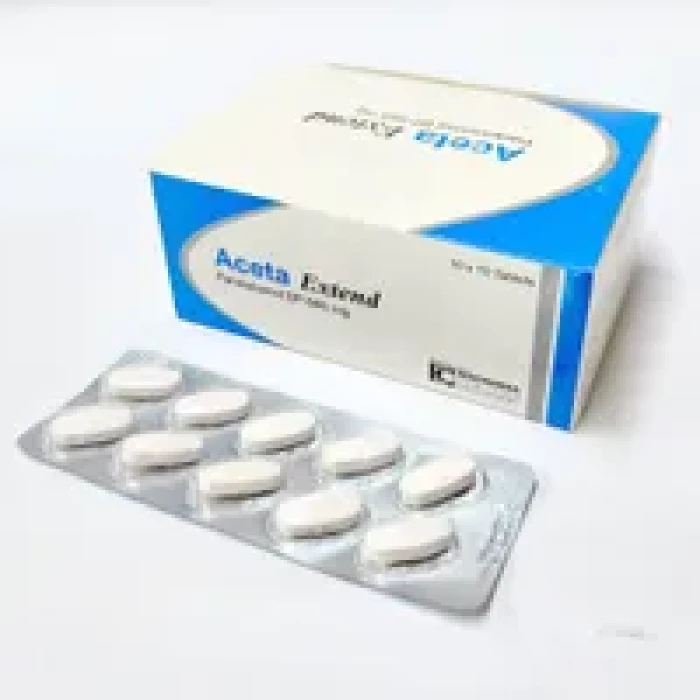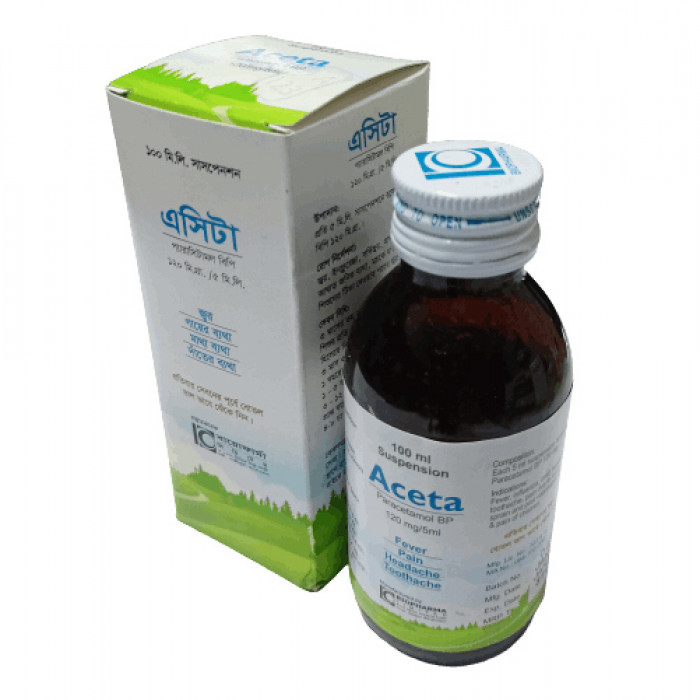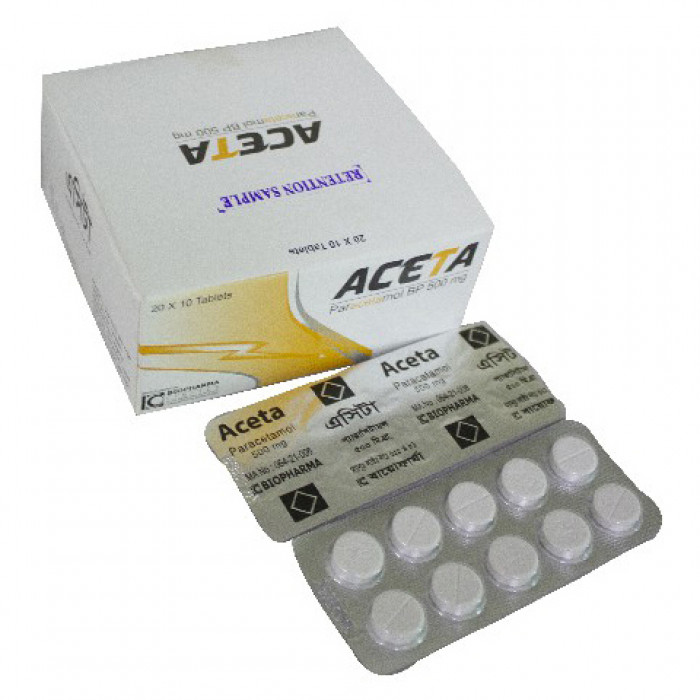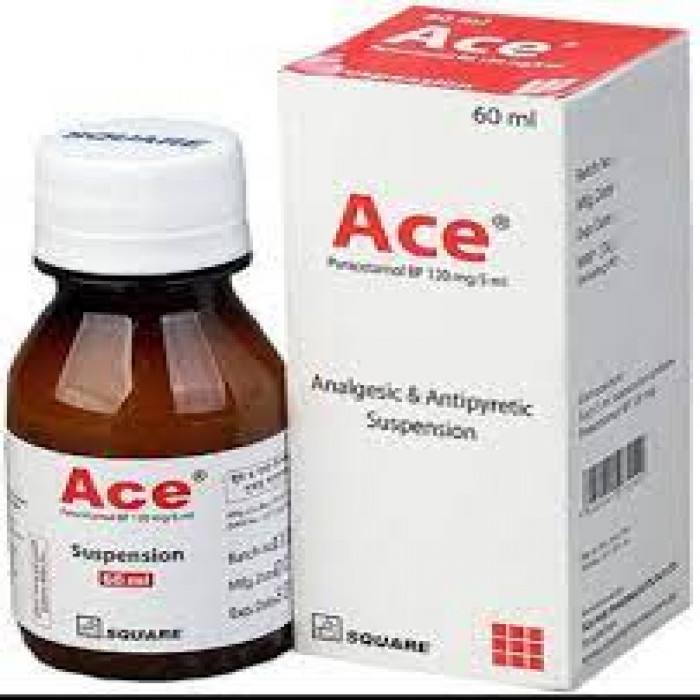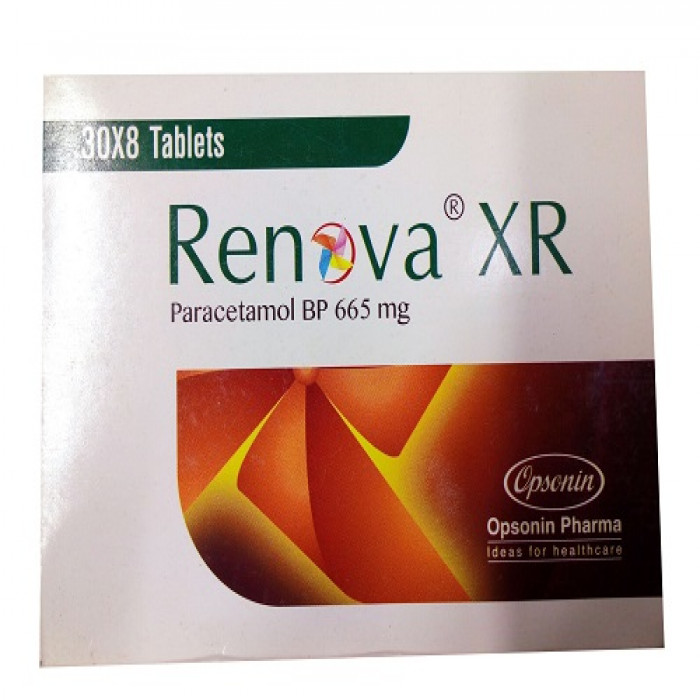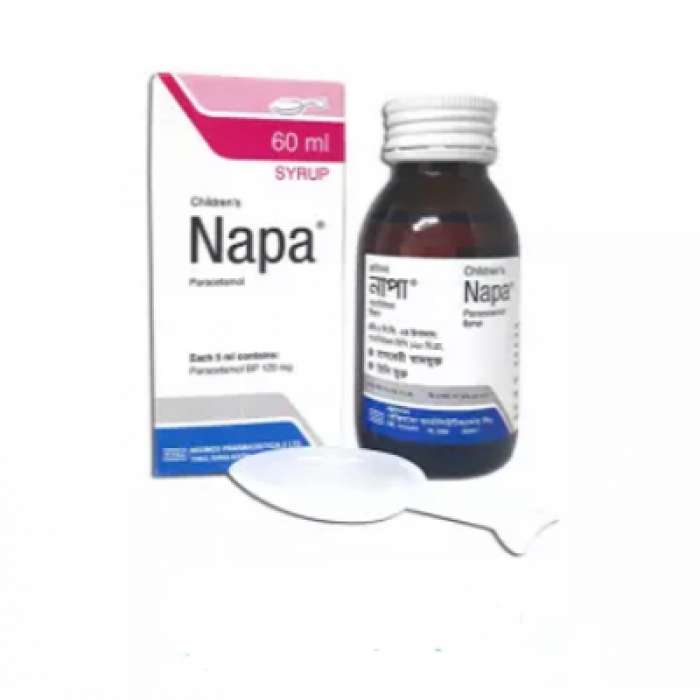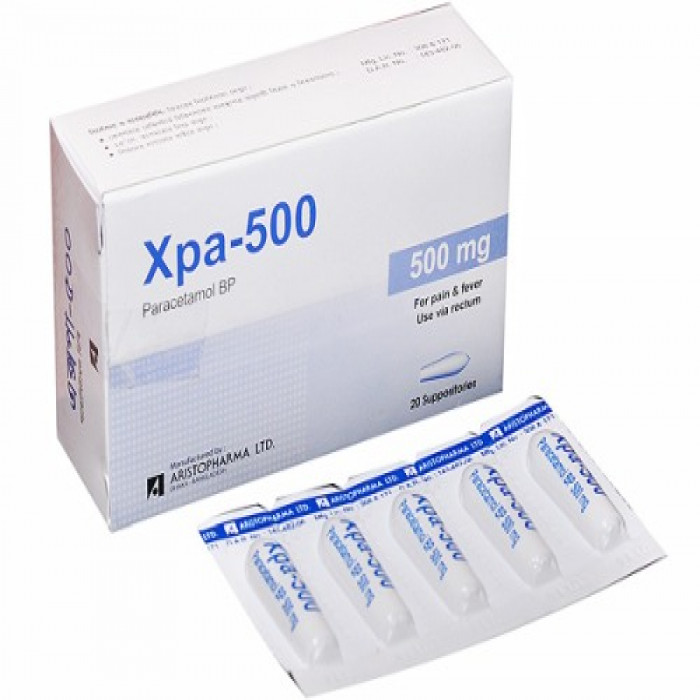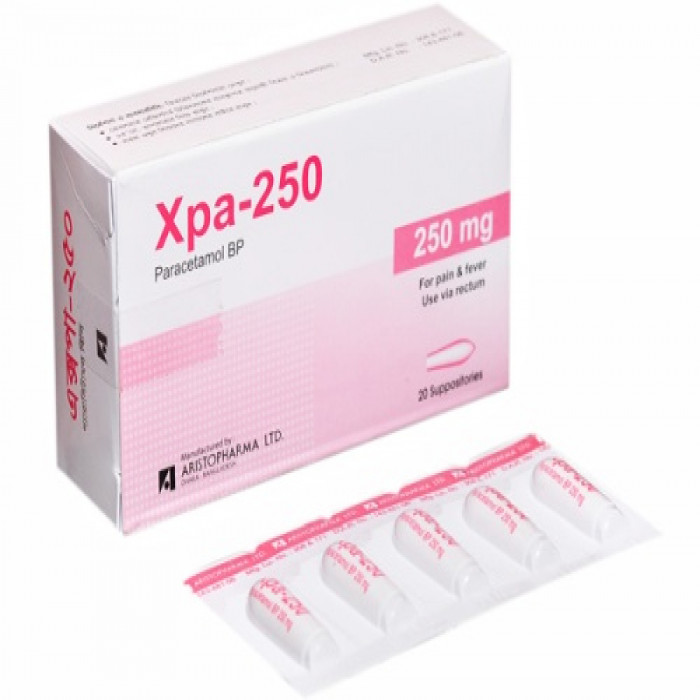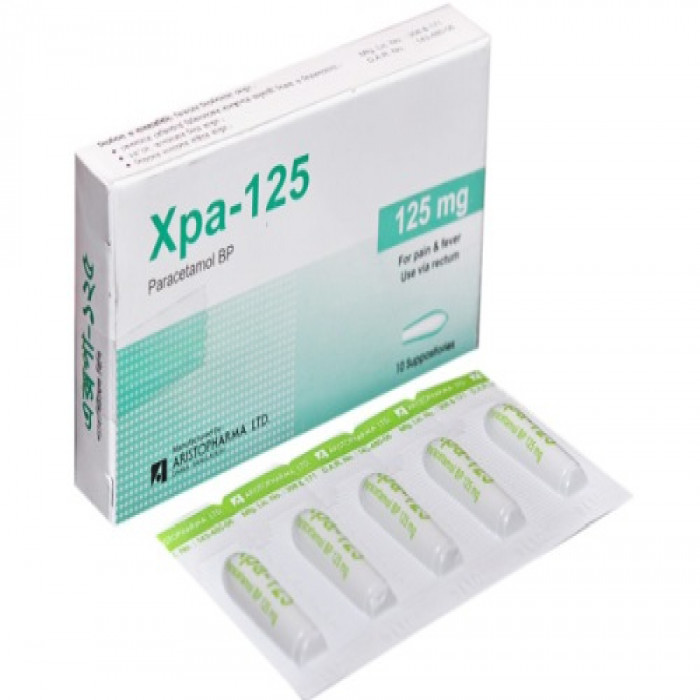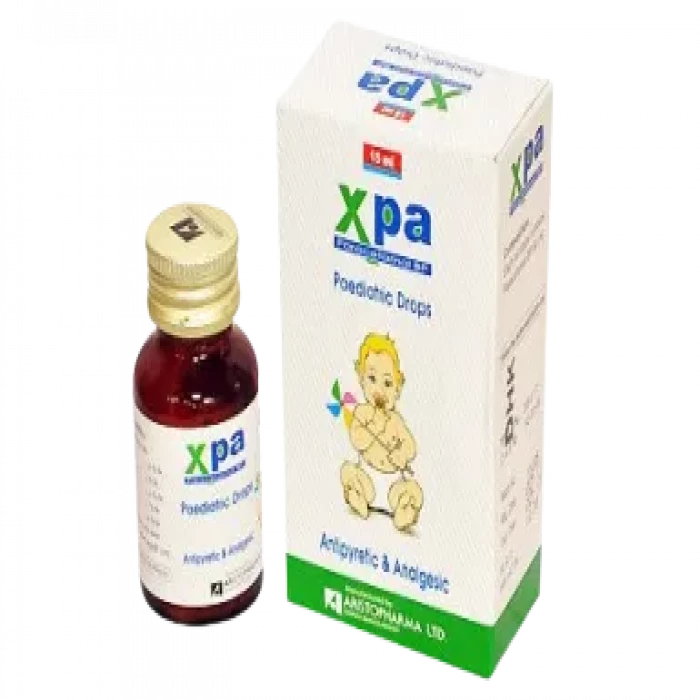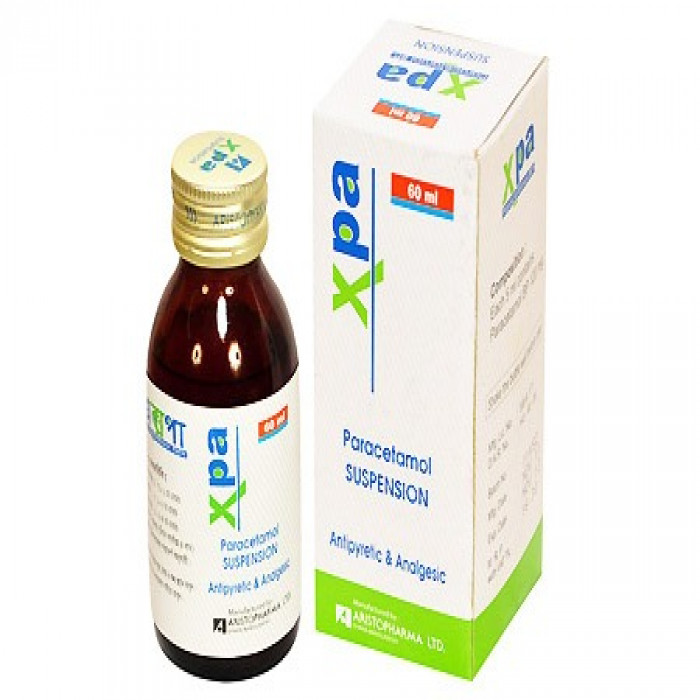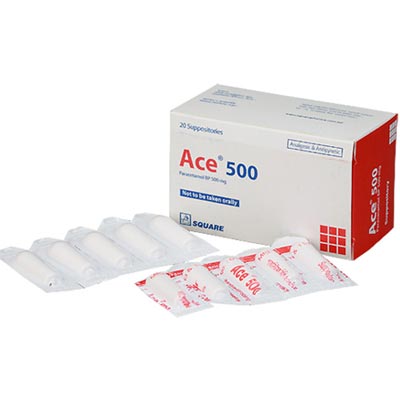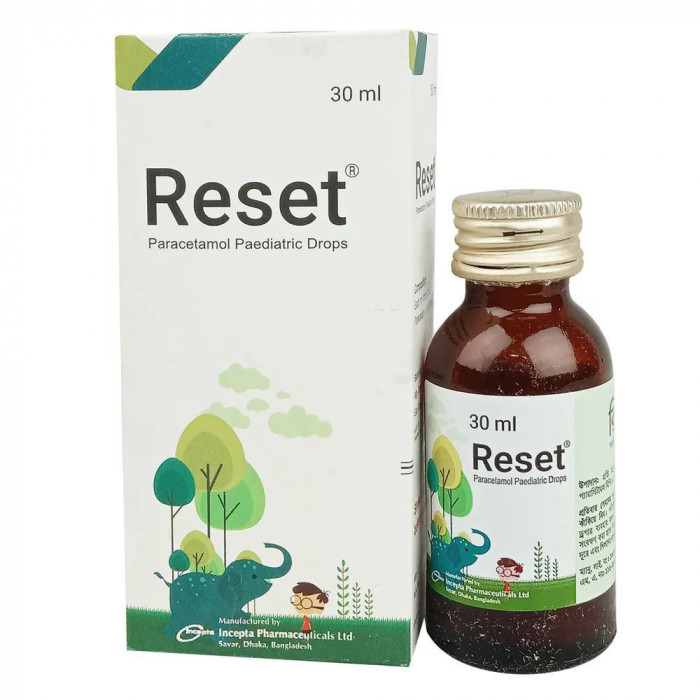Due to National Election, orders may be processed slight delay, nationwide.
Leading Online Pharmacy of Bangladesh
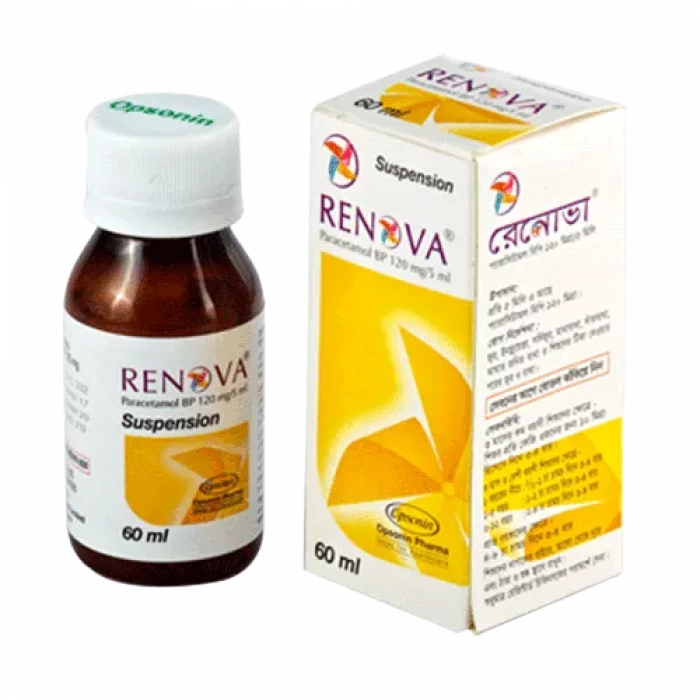
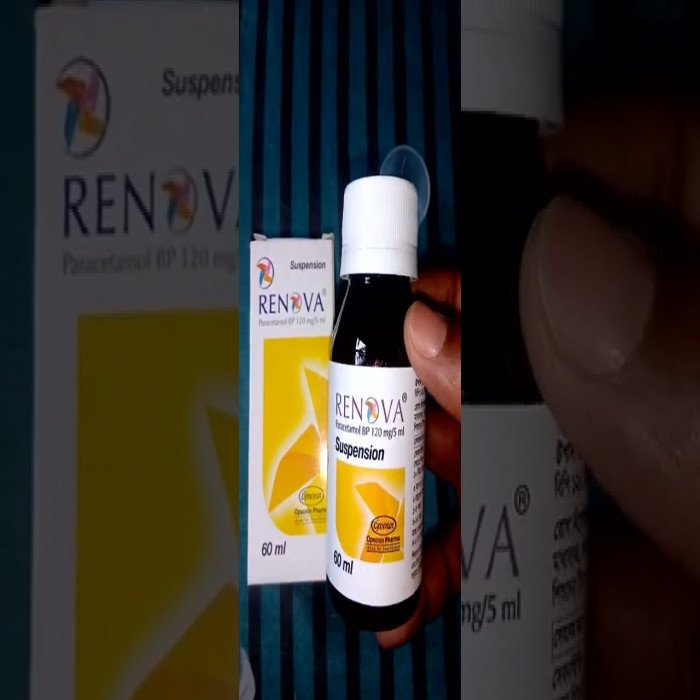
✔ 100% Authentic Product
👁️ Currently Viewing 8052
Renova Suspension (Paracetamol) is used to treat minor aches and pains and for reduction of fever
Discount
Price: ৳ 33
MRP:
৳
35
5%
Off

100% Genuine Products, Guaranteed

Safe & Secure Payments, Always

Fast, Secure & Efficient Delivery

Proper Packaging
 Cash on Delivery - All over Bangladesh
Cash on Delivery - All over Bangladesh Regular Delivery - 12-24 Hours, Dhaka City* Charge Tk.39-59
Regular Delivery - 12-24 Hours, Dhaka City* Charge Tk.39-59 Regular Delivery - 24-48 Hours, Other Cities* Charge Tk.99-110
Regular Delivery - 24-48 Hours, Other Cities* Charge Tk.99-110
 ফ্রি ডেলিভারিঃ - ৯৯৯ টাকা+ অর্ডারে, ঢাকা
শহরে
ফ্রি ডেলিভারিঃ - ৯৯৯ টাকা+ অর্ডারে, ঢাকা
শহরে ফ্রি ডেলিভারিঃ - ২৯৯৯ টাকা+ অর্ডারে, ঢাকার
বাহিরে
ফ্রি ডেলিভারিঃ - ২৯৯৯ টাকা+ অর্ডারে, ঢাকার
বাহিরে
100% Genuine Products, Guaranteed
Safe & Secure Payments, Always
Fast, Secure & Efficient Delivery
Proper Packaging
 Cash on Delivery - All over Bangladesh
Cash on Delivery - All over Bangladesh Regular Delivery - 12-24 Hours, Dhaka City* Charge Tk.39-59
Regular Delivery - 12-24 Hours, Dhaka City* Charge Tk.39-59 Regular Delivery - 24-48 Hours, Other Cities* Charge Tk.99-110
Regular Delivery - 24-48 Hours, Other Cities* Charge Tk.99-110 ফ্রি ডেলিভারিঃ - ৯৯৯ টাকা+ অর্ডারে, ঢাকা
শহরে
ফ্রি ডেলিভারিঃ - ৯৯৯ টাকা+ অর্ডারে, ঢাকা
শহরে ফ্রি ডেলিভারিঃ - ২৯৯৯ টাকা+ অর্ডারে, ঢাকার
বাহিরে
ফ্রি ডেলিভারিঃ - ২৯৯৯ টাকা+ অর্ডারে, ঢাকার
বাহিরে
✅ Description:
Renova Suspension is a pain reliever and antipyretic medication. It is used in children to treat mild to moderate pain, such as headaches, toothaches, migraines, nerve pain, sore throats, period pains, and general aches, as well as to assist with lower fever (high body temperature). It also alleviates cold and flu symptoms. It has paracetamol as an active component, which helps to relieve fever and discomfort.
By suppressing specific enzymes (COX-1 and COX-2) involved in the manufacture of molecules responsible for causing pain (prostaglandins), paracetamol decreases pain. It lowers fever by directly acting on heat-regulating areas in the brain, causing vascular relaxation, sweating, and heat loss.
Safety Advices

Alcohol
UNSAFE
Consumption of alcohol should be avoided during treatment with Renova Suspension.

Pregnancy
CONSULT YOUR DOCTOR
Renova Suspension is not recommended for use in pregnant women. Consult your doctor before taking the medicine.

Breastfeeding
CONSULT YOUR DOCTOR
Renova Suspension is not recommended for breastfeeding mothers. Consult your doctor before taking the medicine.

Driving
CAUTION
Renova Suspension does not possess an effect while driving or using machinery.

Kidney
CONSULT YOUR DOCTOR
Renova Suspension should be used with caution for patients suffering from kidney problems. Consult your doctor before taking this medicine.

Liver
CONSULT YOUR DOCTOR
Renova Suspension is not recommended in patients having liver damage. Consult your doctor before taking the medicine.
✔️ Uses of Renova Suspension
Used in children to:
- Relieve mild to moderate pain such as headache, toothache, migraine, nerve pain, sore throat, period pains, and general aches and pains
- Reduce fever
- Relieve symptoms of common cold and flu
✔️ How does Renova Suspension work?
Renova Suspension is a pain reliever and an antipyretic (fever reducer). It acts by inhibiting the release of particular chemical messengers responsible for pain and fever. Renova is a pain reliever and an antipyretic (fever reducer). It acts by inhibiting the release of particular chemical messengers responsible for pain and fever.
✔️ Side Effects of Renova Suspension
While most side effects of paracetamol are generally considered to be minor, there have been recorded cases of certain hematological responses such as thrombocytopenia (low platelet count), leucopenia (low white blood cell count), pancytopenia (deficiency of all types of blood cells), neutropenia (low neutrophil count), and agranulocytosis (severe decrease in granulocytes). It is important to note that these hematological responses are rare.
In addition, rare occurrences of pancreatitis (inflammation of the pancreas), skin rashes, and other allergic reactions have also been reported as potential side effects of paracetamol.
✔️ Quick Suggestions:
- Renova Suspension should be taken with food or milk to prevent an upset stomach.
- Please take it as per the dose and duration prescribed by your doctor. Long-term use may lead to severe complications such as stomach bleeding and kidney problems.
- Do not take indigestion remedies (antacids) within two hours of taking Renova.
- Avoid consuming alcohol while taking this medicine as it can increase your risk of stomach problems.
- Inform your doctor if you have liver disease as your dose may need to be adjusted.
- Your doctor may regularly monitor your kidney function, liver function, and blood component levels if you take this medicine for long-term treatment.
✔️ Indication of Renova Suspension
Paracetamol is commonly used in children to alleviate various symptoms and conditions. It is primarily employed to reduce fever associated with illnesses such as the common cold, influenza, and infections. Additionally, paracetamol is utilized to relieve pain caused by headaches, toothaches, earaches, body aches, myalgia (muscle pain), neuralgia (nerve pain), dysmenorrhea (menstrual pain), sprains, colic pain, back pain, post-operative pain, postpartum discomfort, inflammatory pain, and post-vaccination pain.
Moreover, paracetamol can be effective in managing rheumatic and osteoarthritic pain, as well as relieving joint stiffness. It serves as an analgesic and antipyretic agent, providing temporary relief from various discomforts and aiding in the overall well-being of children experiencing these conditions.
✔️ Pharmacology
Paracetamol possesses analgesic, antipyretic, and anti-inflammatory effects. Paracetamol (Acetaminophen) functions mainly in the CNS by blocking both isoforms of cyclooxygenase, COX-1, COX-2, and COX-3 enzymes involved in prostaglandin (PG) production. Paracetamol is a para aminophenol derivative having analgesic, antipyretic, and anti-inflammatory effects. Paracetamol is a commonly used, safe, and quick-acting painkiller. It is well tolerated and has no aspirin-related adverse effects.
✔️ Dosage & Administration of Renova Suspension
Syrup/Suspension Dosage Guidelines:
- For infants under 3 months: Administer 10 mg per kilogram of body weight, with a reduced dose of 5 mg/kg if the baby is jaundiced. Repeat the dosage 3 to 4 times per day.
- For infants aged 3 months to less than 1 year: Give half to one teaspoonful of the syrup/suspension. Repeat the dosage 3 to 4 times per day.
- For children aged 1 to 5 years: Administer 1 to 2 teaspoonfuls of the syrup/suspension. Repeat the dosage 3 to 4 times per day.
- For children aged 6 to 12 years: Give 2 to A teaspoonful of the syrup/suspension. Repeat the dosage 3 to 4 times per day.
- For adults: Take 4 to 8 teaspoonfuls of the syrup/suspension. Repeat the dosage 3 to 4 times per day.
Always take Renova Suspension as directed by your doctor. Shake well before each use. To accurately measure the dosage, use a measuring cup. Do not exceed the daily dose recommendation. If your kid is allergic to any of the ingredients in Renova Suspension, do not give it to them.
✔️ Interaction
When there is a suspicion of acute overdose or long-term use of paracetamol, it is important to monitor serum paracetamol levels. This is particularly crucial for patients with chronic alcoholism, known G6PD deficiency, severe hypovolemia, chronic malnutrition, renal and hepatic impairment, as well as during pregnancy and lactation.
✔️ Contraindications
It is not recommended if you have a known hypersensitivity to paracetamol.
✔️ Pregnancy & Lactation
According to the USFDA, pregnancy category B. This medication should only be taken during pregnancy if absolutely necessary.
✔️ Precautions & Warnings
For patients with a history of chronic alcoholism, known G6PD deficiency, severe hypovolemia, chronic malnutrition, renal and hepatic impairment, as well as during pregnancy and lactation, it is important to monitor serum paracetamol levels. This monitoring becomes especially crucial in cases of suspected acute overdosage and long-term use of paracetamol. By monitoring the serum levels, healthcare providers can assess the drug's concentration in the bloodstream and ensure it remains within safe limits for these vulnerable patient populations.
✔️ Storage Conditions
Keep away from light and heat in a dry area. Keep out of children's reach.
⚠️Disclaimer:
At ePharma, we’re committed to providing accurate and accessible health information. However, all content is intended for informational purposes only and should not replace medical advice from a qualified physician. Please consult your healthcare provider for personalized guidance. We aim to support, not substitute, the doctor-patient relationship.




